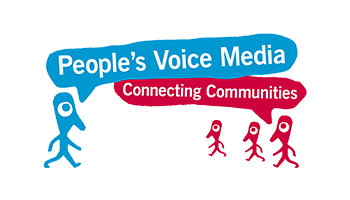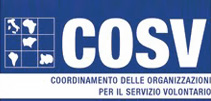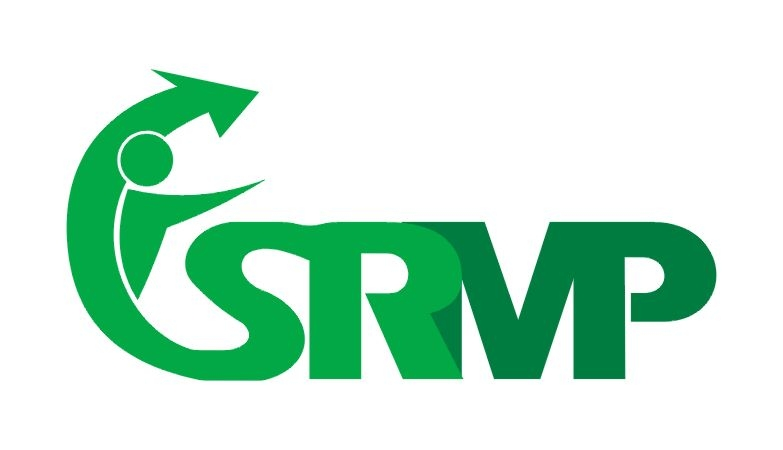Nasze "Głosy" tworzą wpływ poprzez mobilizację projektu danych przyczynią się do budowy i rozbudowy podstaw trwałej europejskiej sieci cyfrowych centrów raportowania Wspólnoty, które docierają do jednostek i społeczności, zwłaszcza tych odizolowanych lub wykluczonych. Projekt jest finansowany z programu E.U Erasmus +.
Historie ludzi mogą dodawać bogate dane jakościowe do projektów i dostarczać zespołom badawczym i organizacjom unikalny wgląd.
Historie te można wykorzystać do określenia kluczowych tematów, informowania o wynikach i wnioskach oraz pozytywnego wpływu na politykę, na projektowanie usług oraz lokalne instytucje działające na rzecz zmian społecznych. Digital Community Reporting to miejsce gromadzenia tych informacji od obywateli, jednakże nie ma spójnego mechanizmu tworzenia tych generowanych cyfrowo historii, które dostarczają cennych relacji z życiowych doświadczeń, dostępnych dla wszystkich oraz decydentów politycznych. Projekt ma na celu stworzenie programu szkoleniowego dla ubezpieczycieli z całego regionu, aby zebrać te historie razem, by zapewnić wgląd do tych grup.
Innowacyjny program nauczania i ramy przyczynią się do zwiększenia wartości danych, a baza zasobów zapewni wsparcie mobilizacji danych i prezentacji ich za pośrednictwem otwartych platform cyfrowych. Kuratorzy będą mogli ocenić pojawiające się historie w cyfrowych nośnikach i przedstawić je jako znaczące informacje w formacie mediów.
- Międzynarodowe partnerstwa strategiczne w całej Europie, aby utrzymywać silne sieci wewnętrzne dla społeczności lokalnych i osób indywidualnych w celu znalezienia i wykorzystania ich "głosu" poprzez szybko rozwijające się cyfrowe sieci raportów wspólnotowych.
- Niezrównana, ogólnoeuropejska społeczność kuratorów, współpracująca w celu zilustrowania i zmobilizowania danych w sposób znaczący, aby określić trendy, potrzeby i kwestie lokalne, regionalne, krajowe i międzynarodowe.
- Powiązania z kluczowymi odbiorcami i decydentami politycznymi w kraju i na arenie międzynarodowej w celu zapewnienia, że głosy społeczności będą wysłuchane oraz zorientowane zostaną na działania polityki wywierającej pozytywny wpływ na społeczeństwo.
Głównymi celami projektu są:

Opracowanie programu szkoleniowego dla kuratorów cyfrowych
Ten program szkoleniowy będzie zawierać wytyczne dla trenerów, organizatorów i moderatorów. Wszyscy partnerzy opracują wstępne badanie w celu identyfikacji istniejących cyfrowych organizacji sprawozdawczych Wspólnoty oraz sposobu gromadzenia, katalogowania i udostępniania danych. Warsztat przeanalizuje i omówi ustalenia, a głównym celem jest określenie kluczowych kompetencji, które powinny zostać uwzględnione w programie szkoleniowym. Po zidentyfikowaniu kluczowych kompetencji program nauczania zostanie opracowany przez trenera zobowiązanego do wyposażenia cyfrowych kuratorów w umiejętności, kompetencje i wiedzę, aby zarządzać opowieściami z różnych środowisk.
Książka dla osób prowadzących zajęcia dla kuratorów cyfrowych
Ponieważ nasze Głosy mają na celu umożliwienie wszystkim uczestnikom opowiedzenie ich historii, partnerstwo będzie dotyczyć osób znajdujących się w niekorzystnej sytuacji. Książka e-Learning dostarczy niewerbalnego podejścia do dostarczania rezultatów projektu uczniom z problemami z czytaniem i pisaniem oraz językiem. Książka jest specjalnie zaprojektowana dla takich grup jak Romowie i Uchodźcy, ale będzie również obejmować uczniów z trudnościami w nauce i problemami z umiejętnością czytania i pisania. Będzie ona zawierać te same moduły nauczania, które opisano w programie szkoleniowym Digital Kurator, ale oferując dodatkowe materiały edukacyjne.


Resource Bank of Virtual Library
This web based resource bank (database) will allow users to locate supportive materials such as articles, audios, videos, existing web resources and any items and fields of information that will support the training of digital curators. It will also act as virtual library where curated stories will be shared. It will be categorised to reflect the area of interest e.g., learning, support materials, fields of interest e.g socially isolated groups, immigrants, etc. It will would also be linked to supportive learning materials, webinars and signpost e-learning platforms linked to the project. It will also provide access to project social media platforms, forum and chat room. This will continue to be added to, and interacted with, after the life time of the project so it will continue to contribute towards the development of networks, build awareness of the Digital Curator training programme and its important role in the future of the digital community reporting field.
Together we can do more!

People’s Voice Media (UK)
People’s Voice Media is a NGO based in Salford in Manchester that works across Europe. PVM was founded in 1995 and we specialise in supporting people to have a voice. In 2013 we were recognized as being one of the top 50 digital leader in the UK. We developed the Community Reporter programmer in 2007 and this has now developed into a pan European Community Reporter partnership with over 35 organisational members and almost 2000 reporters. Reporters are local residents often from marginalized and excluded groups who tell their own stories and the story of other people around them to develop an authentic European voice of real people. All are programmers are accredited and quality assured through the Institute of Community Reporters. We work in the Heath, housing and higher education and research sector with service users, citizens and communities.

The Comparative Research Network (Germany)
The Comparative Research Network was founded in 2007 and has works in the field of adult education. The CRN Network specialises in delivering training activities within the fields of intercultural competences, intergenerational learning, mobilities and migration. Additionally CRN specialises in creating and performing evaluation and dissemination processes. Due to CRN being organised as a transnational network, it has an international scope. As an NGO CRN is non-profit oriented and performs crucial part of its work on a voluntary bases. The major target groups of the CRN are marginalized groups, such as persons living in remote rural areas, seniors and unemployed. CRN is seeking to link social science with civil society actions - that is why CRN has joined various local, national and transnational networks.
Change Maker AB (Sweden)
Change Maker is a change agency working in education, and using organisational consulting to support communities to start up activities, do fundraising and find networks. Changemaker are an experienced actor working in cooperation and education with the Swedish Folk High Schools and HigherVocational Training programmes (funded by Swedish Authority of Higher Vocational Training). Our programmes are concerned with getting people to find the ways to the labour market (through studies and practice).

COSV (Italy)
COSV was born in 1968 and it is active in the field of the International Cooperation and Development. COSV is active in Europe, Africa, Latin America, Mediterranean and Middle East, the Balkans and in the Pacific. COSV aims to promote a culture of cooperation and solidarity between people building on an asymmetric relation between the donor and the beneficiary. COSV wants to foster a cooperation founded on the interaction among peers for the achievement of a common aim: the economic, social and human development of the societies. COSV also aims to build a real partnership with its local partners, where the relationship is built on a continuous and valuable discussion between different parties each sharing the same objectives.

FUNDACION INTRAS (Spain)
INTRAS is a non-profit organisation founded in 1994 dedicated to high quality research and intervention in the psycho-educational field. It aims to improve the quality of life of vulnerable groups, and in particular youth at risk of social exclusion due to social/family/migrant/disability background. We do this by delivering education and training and promoting their inclusion into the labour market. The organisation consists of 10 centres in 8 different provinces in Spain with more than 120 psychologists and professionals from social and educational fields carrying out research, education and training. INTRAS targets young people who are not in employment,education or training aged 14-21. We re-engage them in second chance educational programmes and help them find job opportunities. INTRAS runs non-formal educational activities such as artistic workshops (handcrafts, painting, graffiti...) and ICT/digital workshops (computering design, digital photography, blogging, radio online, podcast...).

CSRMP (Poland)
Częstochowa Association of Small Business Development was founded in1996. As part of its statutory function the govenment works with business at a local and regionally level in the field of rural development and community rural development. We organize and support various kinds of business projects through workshops, training, festivals and study trips. In the last 10 years over 10,0000 partcipants have taken part in our programmes. We also support businees development in rural areas through a loan fund. Since 2005, we started to support various local youth groups and have worked with 15 projects some of which our international. Employees of Czestochowa Small Enterprise Development Association for the last 7 years organised all kinds of international youth projects. For more than five years we have been working with organizations and youth groups from Ukraine, Belarus, Georgia and Armenia.
